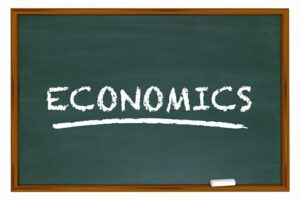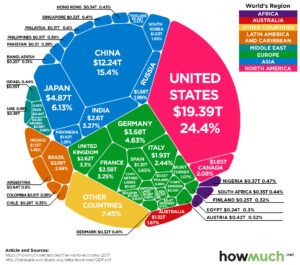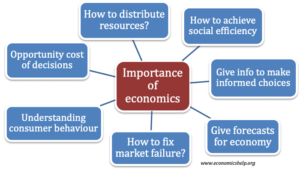Economics Essay Examples Page 24
476 essay samples on this topic
Essay Examples
Essay topics
Overview
Citibank IT Strategy
Banking
Strategy
Customer Centricity In the recent past, most of the bank’s customers prefer to do business digitally. Over 60% of the customer transactions are now online. In the cards business, digital spending is increasing in double numbers compared to that of traditional swipe-and-pay transactions. There has been an increased level of satisfaction for customers embracing digital…
Should Teens Drive at 16
Teenage Driving
When taking the driving test everyone is accessed on their ability to drive a car. The new student drivers also have to be at least 16 years of age. But should teenagers be allowed to drive at the age of 16? Although driving can teach many teenagers how to be responsible, a young minor should…
Global Capitalism Reduces Poverty
Capitalism
Capitalism, due to its nature, results in improved profit margins. The major driving factor is profit making controlled by individuals with specific interests, which has led to the diversification of the economy, providing more opportunities for new entrants and encouraging innovation through competition. By making more profit, they can invest further and employ more people…
Income Inequality and Wealth Inequality
Economic Inequality
Economy
Income Inequality Piketty (2014 p. 242-244) Income inequality is defined by Thomas Piketty in his book “Capital in the Twenty-First Century” ‘mentioned these two points: inequality of income from labor and inequality of income from capital or Wages and Profit ‘ in general the income inequality can be from many changes in a society: High…
Money and Our Overall Satisfaction
Can Money Buy Happiness
Money
With money, we would not need to worry abt having not enough money where we can buy whatever we like. If someone has a lot of money, she can buy a house, a car, a yacht or even an island. Those who are rich can also enjoy expensive food and clothing. According to Libby Kane,…
Critical Analysis of Virginia Beach’s Transportation Infrastructure
Industry
If the purpose of a transportation system is to move goods, people, services, and other items safely from Point A to Point B in a timely manner, does Virginia Beach’s transportation system do this? In a short answer; no. While road congestion is not a problem that can be eradicated with current technology it can…
Free International Trade
International Trade
Policy
United States
With free trade, the ideal purpose of the agreement is to give traders the freedom to buy and sell from various economies without the application of any governmental regulations such as tariffs, prohibitions, or quotas on goods and services. In other terms, free trade is directly opposite to economic isolationism, or trade protection. In today’s…
Fast Development of E Commerce
Business
E Commerce
Internet
E-commerce is a business transactions directed online. It can also be referred as whatever you buy and sell via internet, you are engaged in e-commerce. In 1994, the first true e-commerce transaction was conducted by Phil Branden Berger of Philadelphia using his credit card via internet. It was the first time, where an encrypted technology…
Industrialization in Rwanda
Africa
Industrialization
The crucial Role of industrialization is well recognized in the development of many countries and is viewed as the answer of malfunction of economic growth especially in developing countries. The historical record shows the importance of industrialization in developed countries of today like Chine, Singapore, South Korea for boosting their economic growth as well as…
The Conscientious Pharmacist
Pharmacist
Pharmacy
The code of ethics for pharmacists requires that a pharmacist “respects the autonomy and dignity of each patient.” Thomas Anselm fails to provide the patient with the opportunity to decide on her health. In this case, Anselm fails to respect the patient’s autonomy to make her own decision on the use of contraceptives. However, respecting…
Check a list of useful topics on Economics selected by experts
The balance between demand and supply
Elasticity: quick response of one variant from the change of the other
Consumer demand theory
The theory of production: The process of changing materials into products
Production costs
Perfect competition
Monopoly
The structure of a market and the system that comprises it
Game theory
The labor economics
The information economics
The economics of market structure
Opportunity costs
10 principles of economics
How has the internet changed marketing?
The four-day workweek: Is that something more companies should adopt?
What role do consumers play in keeping the market stable?
What Role Does Advertising Play In Microeconomics?
Ways In Which Creativity Can Lead To Huge Success
Industrialization Impacts On The Environment.
The Seasonal Changes In Our Economy.
The Purchasing Ability Of A Consumer And Its Impact On Prices.
The Latest Marketing Trends.
Focus On Companies That Have A No Sale Policy.
Changes In Oil Demand Over The Last Decade.
How Does Economy Change With the Change of Seasons
An Argumentative Essay on the Microeconomic Market Structures
How Do Different Microeconomic Market Structures Affect Supply?
The Impact of Labor Market and the Labor Union on Supply and Demand.
How Does Consumer Purchasing Ability Affect Pricing System?
The Use of Advertising in Microeconomics and How it Affects Customer’s Decisions
Should credit card companies add a warning page as part of their contracts?
Does outsourcing reduce costs?
Does outsourcing benefit the country receiving the work?
Would a European economic crisis affect other countries?
information
What is economic?
Economics is a set of economic sciences, a type of social science that studies the relationship between people in the production, consumption, distribution, and exchange of goods or services. The subject of economic theory is how people and society choose to use limited resources.

In addition to the basic one, there are several other definitions of economics put forward by scientists over the years. Its founder as a separate science is considered to be Adam Smith.
Economics was also called political economy, but from the second half of the nineteenth century it became politically neutral, and the word “politics” was excluded from the definition. Nowadays, economics is considered to predict the outcome of certain political decisions without interfering with politics.
Historically, economics has come a long way. Its main directions were mercantilism of XV-XVIII centuries, physiocracy of the second half of XVIII century, classical political economy of the end of XVIII century – 30s of XIX century, neoclassical economics which appeared in 1890s, Keynesianism and monetarism of XX century. A separate direction in economics – a peculiar offshoot of it – is Marxism.
The subject of the study of economics is not values, but agents of economic activity, such as individual households and society as a whole. That is why economics belongs to the social sciences.
On the scale of the study it is divided into microeconomics, the subject of which is organizations and households, and the study of the functioning of the economy as a whole.
Microeconomics looks at individual agents and their choices: what and for whom to produce, consume, how to interact in the process of exchange, etc. It studies the efficiency of production, cost, supply and demand, the specialization of economic agents, uncertainty and game theory.
The main macroeconomic indicators are unemployment, inflation, economic growth, monetary and monetary policy, and business cycles.
In addition to macro- and microeconomics, economic sciences include the following disciplines: econometrics, economic statistics, history of economic teachings and economic history, management, marketing, branch economics, engineering economics, enterprise economics and labor economics, accounting, managerial and financial accounting, etc.
Videos about Economics
- Intro to Economics: Crash Course Econ #1
2. Inflation Is Driving Secondhand Markets Out Of Control. Here’s Why.
3. How The Economic Machine Works by Ray Dalio
Interesting infographics about Economics
- World economics

2. Example of economic – Shipping Industry in EU in 2020

3. Importance of economics


